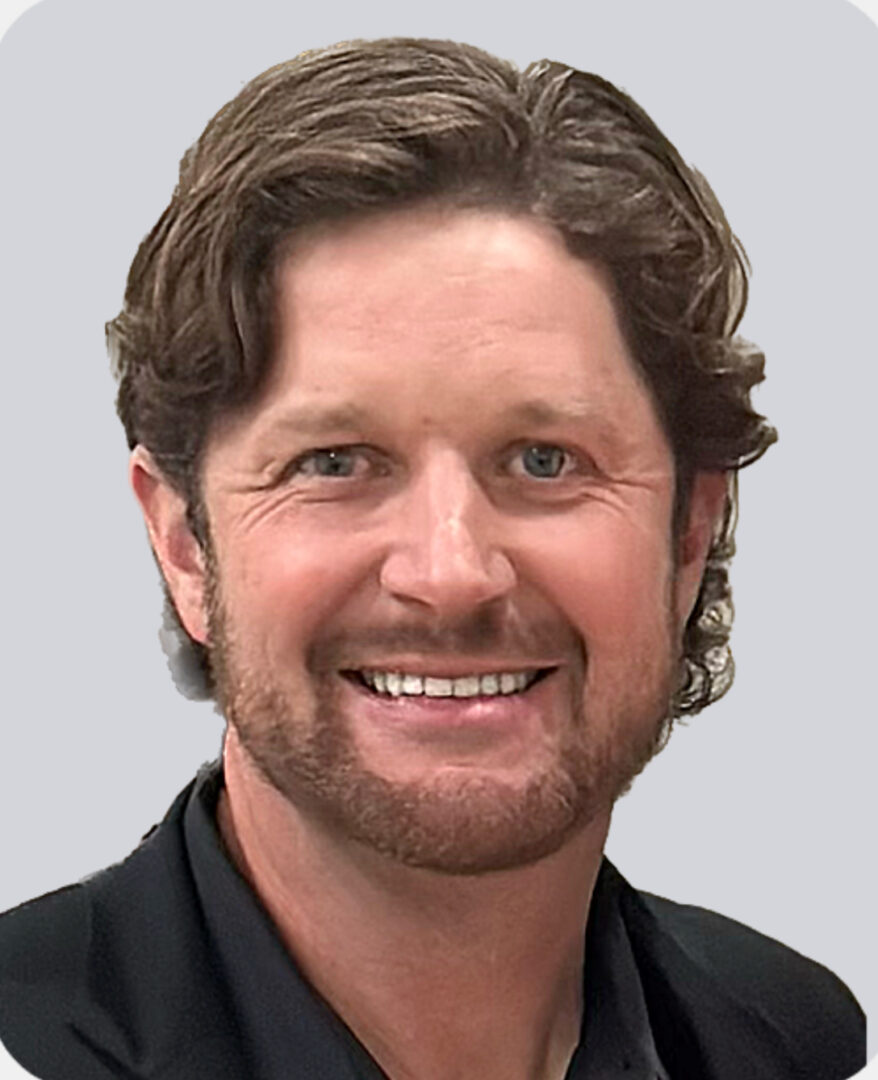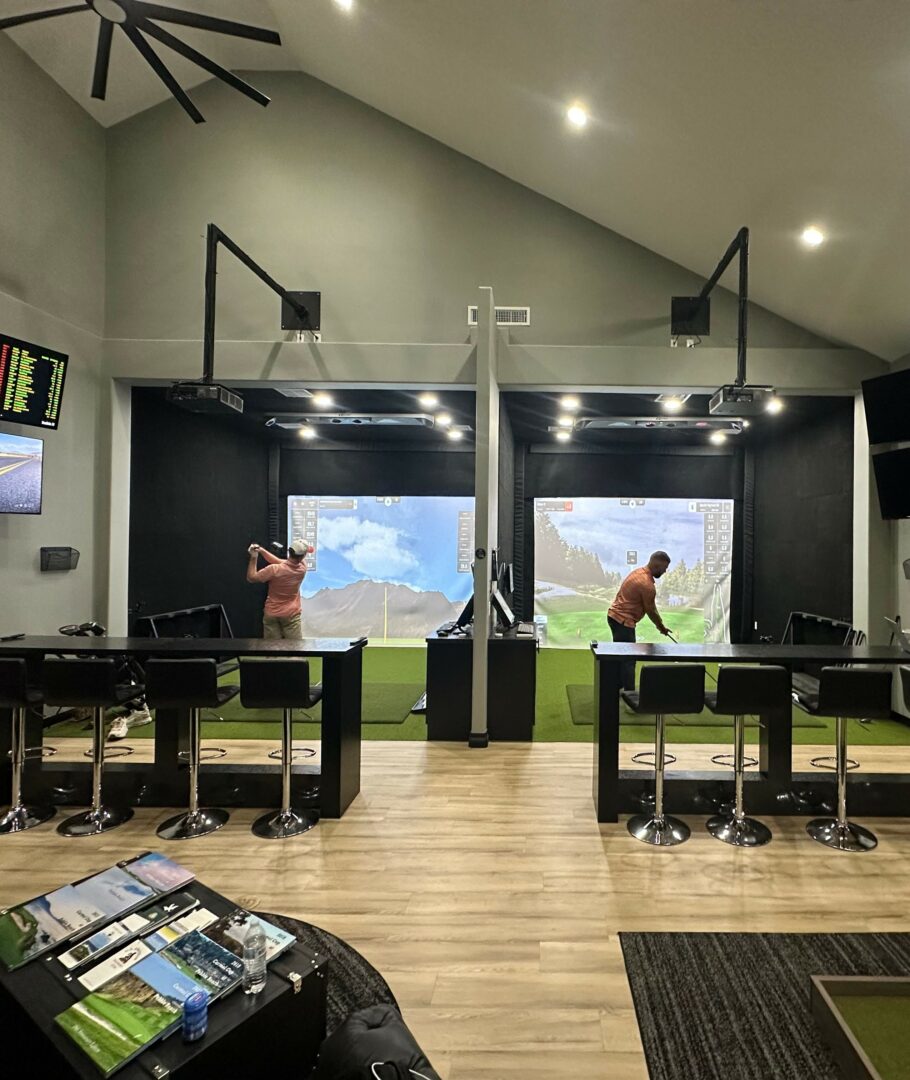We were lucky to catch up with Barrett Lais recently and have shared our conversation below.
Alright, so we’re so thrilled to have Barrett with us today – welcome and maybe we can jump right into it with a question about one of your qualities that we most admire. How did you develop your work ethic? Where do you think you get it from?
I didn’t develop my work ethic in a boardroom or learn it from a motivational book.
I earned it one early morning at a time.
My story started on the practice tee at the University of Arkansas, where I was a four-year letterman in one of the toughest conferences in college golf. Day after day, I learned that success doesn’t come from talent—it comes from discipline. From showing up when everyone else stayed home. From caring about the little things no one else notices.
When my playing career ended, I stepped into a 15-year coaching career at the Division I level—first at Denver, then back home to Arkansas. Coaching at that level isn’t a job; it’s a lifestyle. Recruiting calls. Early flights. Long practice days. Preparing young players for SEC championships, NCAA postseason, and eventually the PGA Tour. I coached athletes who became All-Americans, Palmer Cup players, SEC Champions, and PGA Tour winners.
That environment forces you to grow. It forces you to care. And it teaches you that results only come from relentless consistency.
That’s where my work ethic comes from.
Today, that same drive is the foundation of Twenty to Scratch—a 24/7 performance facility built for golfers who want to get better, not someday, but right now. Everything we do—TPI screening, training, instruction, club fitting, swing analysis, college recruiting guidance—is powered by the same standard I lived by as a player and demanded as a coach.
I’ve spent my life helping golfers go from potential to performance.
Helping juniors find their college homes.
Helping everyday players strike the ball better, hit it farther, and actually see results.
I’ve learned that talent opens the door, but work ethic is what walks you through it.
And that’s what I bring to every lesson, every session, every junior, every family, and every golfer who walks through the doors of Twenty to Scratch.

Let’s take a small detour – maybe you can share a bit about yourself before we dive back into some of the other questions we had for you?
I’ve spent my entire professional life in the world of golf—first as a collegiate player at the University of Arkansas, then as a Division I coach for fifteen years, and later as a PGA Tour instructor. I’ve coached NCAA All-Americans, SEC Champions, Palmer Cup players, and multiple PGA Tour winners. That journey shaped how I see the game, how I teach it, and ultimately, the business I’ve built today.
Now, my focus is on creating a complete performance environment for golfers of all levels through my indoor golf facility, Twenty to Scratch. We’re open 24/7 and built around one simple idea: give golfers everything they need to improve under one roof. That includes world-class instruction, TPI performance training, club fitting and repair, mental coaching, and a college recruiting program for junior golfers and their families. Whether someone wants to break 80, earn a college scholarship, or compete at the highest level, our goal is to give them a clear path and a plan that produces real results.
What excites me most is that we don’t just teach people how to swing—we teach them how to practice, how to train their body, and how to understand their game at a deeper level. My philosophy is built around proper alignments, a correct pivot, and the body as the engine of the golf swing. When golfers learn to move well, improvement becomes predictable instead of random. Seeing someone gain confidence, find speed they didn’t know they had, or finally hit the ball consistently—that’s the part that never gets old.
We’re also expanding in ways I’m really proud of. We’ve partnered with Diamond Training Fitness to integrate TPI performance training into our program, and we now offer a full TPI Membership that includes monthly assessments, custom corrective programs, supplements, and recovery services. Our new putting studio features a full SAM PuttLab station, and our club repair center—led by Aaron Circle, who has more than 30 years of experience—offers everything from custom builds to hot melts to loft/lie adjustments.
Another exciting chapter is our recent partnership with Titleist. As a Titleist account holder, we can now offer premium equipment, balls, and custom-branded hats, shirts, and gear to businesses nationwide. It’s been fun to help companies elevate their brand through high-quality golf products, and we’re on track to grow that side of the business significantly.
What I’d like people to know is this: Twenty to Scratch isn’t just a place to hit balls. It’s a place built on years of experience at the highest levels of the game, and it’s designed to help golfers finally feel like they have a plan, a coach in their corner, and a place they belong. Whether you’re a junior golfer chasing college golf, a high-handicap player trying to break 80, or a business looking to connect with customers through the game of golf—we’re here to help you do it the right way.

If you had to pick three qualities that are most important to develop, which three would you say matter most?
When I look back on my journey—from competing in the SEC, to coaching Division I golf for fifteen years, to training PGA Tour players, to building my own performance facility—there are three qualities that made the biggest difference.
1. Relentless Work Ethic
Growing up in competitive golf, and later coaching at the highest collegiate level, you quickly learn that talent isn’t what separates people—consistency is. The habits others skip are the ones I leaned into: early mornings, extra reps, deeper preparation, and being the last one to leave.
How to Develop It
Start with one non-negotiable habit. Something you do every single day, no matter what.
Do the boring things well. Excellence is built in the details no one else pays attention to.
Hold yourself to a standard—not a schedule. Work ethic is about who you are, not how long you work.
2. Deep Technical Knowledge
I’ve always believed that if I’m going to teach someone, I need to know the craft at a level most people aren’t willing to. That mindset led me to master swing mechanics, biomechanics, TPI training, putting analysis, club fitting, and recruiting strategy. The more I learned, the more I could help players improve faster.
How to Develop It
Become obsessed with the fundamentals. Everything great is built on them.
Ask “why?” more often. If you only understand what to do, you’ll never be able to teach or adapt under pressure.
Invest in coaches and mentors. Find someone who sees the game—or your craft—at a higher level and learn everything you can from them.
3. The Ability to Build Trust
Whether you’re coaching a junior golfer or a PGA Tour player, trust is everything. Players trust you with their careers, parents trust you with their children, and clients trust you with their goals. You earn that trust through honesty, clarity, and showing up every time you say you will.
How to Develop It
Communicate clearly. People trust what they understand.
Do what you say, on time. Reliability builds confidence faster than talent.
Be honest—especially when it’s uncomfortable. Hard truths create long-term respect.
Final Advice for Those Early in Their Journey
If you’re just starting out—whether in golf, business, or any field—focus less on where you want to be and more on who you’re becoming.
Develop habits, not shortcuts.
Learn deeply, not quickly.
Build relationships, not transactions.
If you take care of those three things—work ethic, knowledge, and trust—your opportunities will start taking care of themselves.

What do you do when you feel overwhelmed? Any advice or strategies?
When I feel overwhelmed, the first thing I do is slow everything down and get the problem out of my head and onto paper. I write down exactly what’s causing the stress, and then I break it into clear, actionable tasks. Once I can see the issue instead of feel it, the pressure drops immediately. Overwhelm usually isn’t about the size of the problem—it’s about the chaos of not knowing where to start.
Over the years, especially coaching at the Division I level and running my business now, I’ve learned a few strategies that make a big difference when things feel heavy:
1. Get the Problem Out of Your Head
Your mind is a terrible storage system.
Writing things down creates clarity.
My process looks like this:
Define the real issue in one sentence
List every task required to solve it
Circle the one task I can do next, not the one that feels biggest
That turns overwhelm into a checklist.
2. Focus on Movement, Not Perfection
Overthinking creates paralysis.
Action—even small action—creates momentum.
I remind myself that I don’t need to finish the whole project right now; I just need to start the next step. Professionals learn to manage emotions through movement.
3. Protect Your Energy, Not Just Your Time
When I feel overwhelmed, I try to do the hardest task when I have the most energy. That might be early morning before teaching, or late evening when things are quiet.
Working in alignment with your natural energy levels makes you more effective and cuts overwhelm in half.
4. Simplify—and Cut Out Anything That Doesn’t Serve the Goal
Overwhelm often comes from trying to do too much at once.
When I simplify the plan and remove the noise, everything gets easier.
Sometimes the most powerful decision is deciding what not to do.
5. Talk It Out
Whether it’s a fellow coach, a mentor, or someone on my team, talking through the issue creates perspective. Usually, what felt like a mountain ends up being a series of manageable steps once you’re not carrying it alone.
Advice to Others
If you’re early in your journey, here’s my biggest advice:
Write everything down. Clarity kills overwhelm.
Break problems into tasks you can execute today.
Focus on progress, not perfection.
Control what you can—and release what you can’t.
Don’t be afraid to ask for support. Strong people don’t do everything alone.
Overwhelm is not a sign of weakness.
It’s a sign you care.
The key is learning how to manage it, not avoid it.
Contact Info:
- Website: https://www.twentytoscratch.com
- Instagram: @twentytoscratch
- Facebook: TwentytoScratch
- Linkedin: Barrett Lais
- Twitter: @TwentytoScratch


so if you or someone you know deserves recognition please let us know here.



